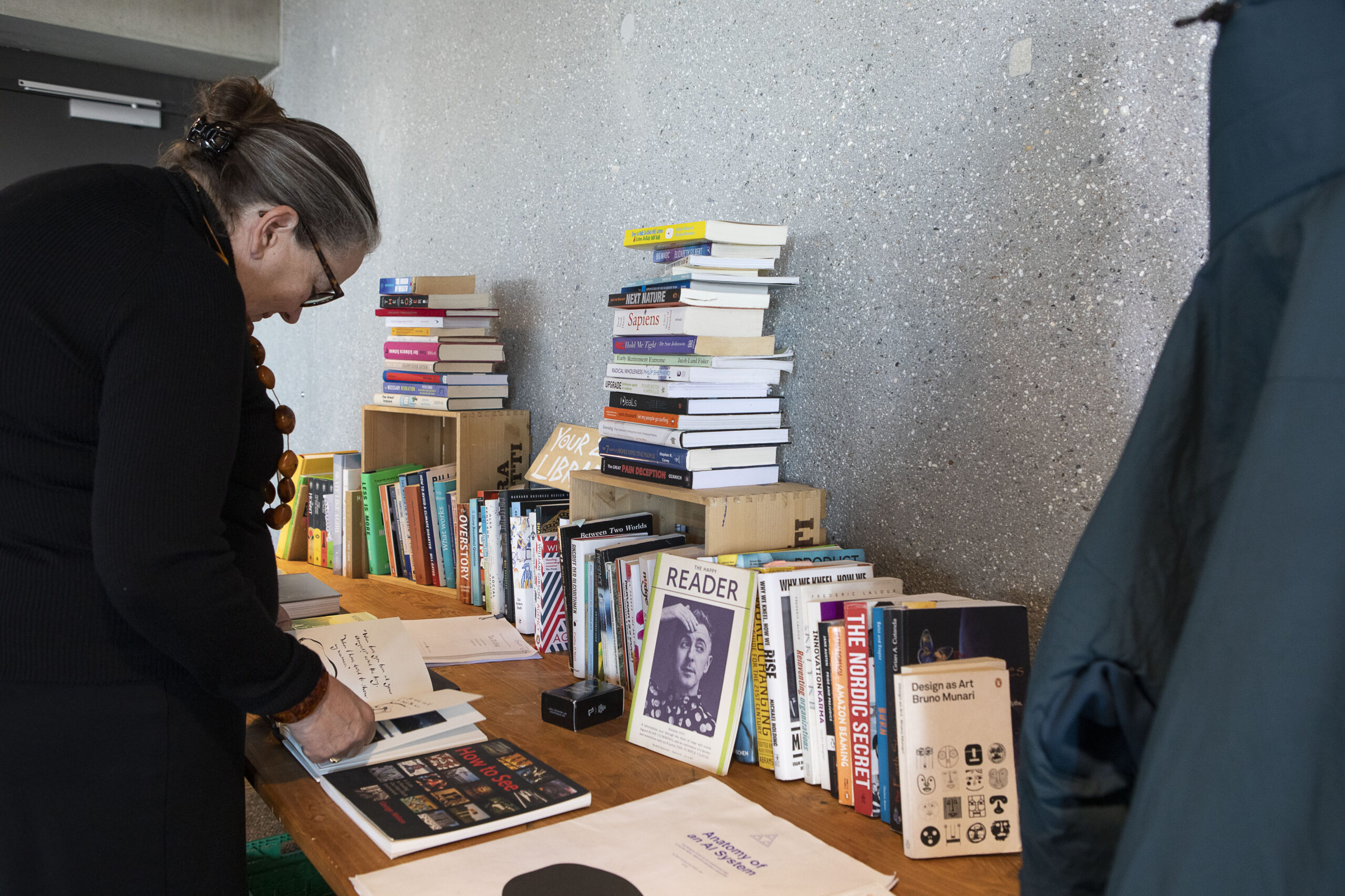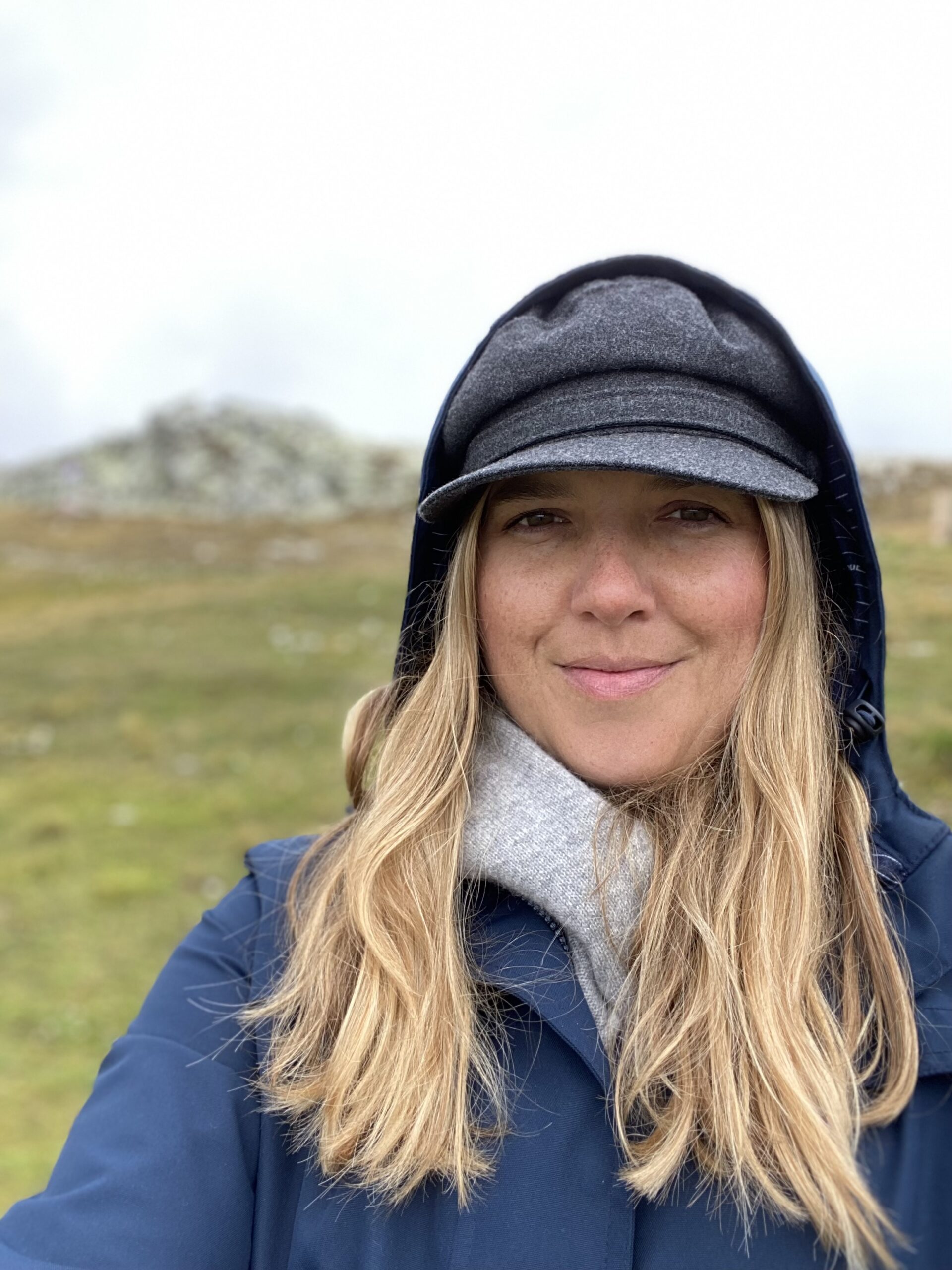Laax. A beautiful mountain resort situated in the Swiss Canton of Graubünden. Best known as a freeride snowboarder's paradise, the village was host in September 2021 to the first ever gathering of the [y]our 2040 community, a coalition of the willing focused on "the world we want to co-create." Supported by ETH Zurich, the event included participants from diverse backgrounds, all connected by a common goal and shared values. Taking the opportunity of being onsite to talk to some of them, we want to make the link with our RETHINKING LIVING campaign, a virtual red-thread we have been running since the start of the pandemic.
From Laax to Davos: Reflections on RETHINKING LIVING, Ep. 3
Episode 3: Susan Kish, Managing Partner, Andesa Advisors
by Viktoria Ivarsson
The Journey Begins
RETHINKING LIVING invites us to consider the grand challenges and global issues of today through the lens of the latest science and knowledge. What is life? How do we live? What are the consequences of our lifestyle choices? We asked participants in Laax to tell us what are the questions that keep them up at night, and how they see the future evolving. This video series distills their reflections, to help us think about what could, and what should come next. ETH Zurich had planned to take up these questions in its RETHINKING LIVING Pavilion, a space designed to promote dialogue and exchange with a broad audience during the World Economic Forum's Annual Meeting 2022 in Davos. Since filming, the meeting has been postponed to a later date due to the pandemic and the RETHINKING LIVING campaign remains virtual – you can learn more about it here.
Making Sure We Leave Behind A Gift, Not a Burden

Photo credit: Your 2040, Miriam Künzli
In episode three, Susan Kish explains why climate change is the challenge of our time. We face some incredibly hard decisions as individuals, as companies, as countries, that we must make if we are to achieve a net zero world. Susan's work is at the nexus between sustainability, disruptive technologies and the evolving energy system. From her perspective, science and technology are key factors that will influence our ability to rise to the challenge. Universities like ETH Zurich are therefore key actors in achieving this. Susan is a member of the ETH Circle, a group of friends and alumni supporting ETH Zurich across the globe: https://circle.ethz.ch.
For additional resources and further information, visit:
https://your2040.com
https://ethz.ch/en/the-eth-zurich/global/events/rethinking-living.htm
https://andesa.co
For additional resources and further information, visit:
https://your2040.com
https://ethz.ch/en/the-eth-zurich/global/events/rethinking-living.htm
https://andesa.co
My name is Susan Kish, I am an entrepreneur, banker and executive. I spend most of my time looking at issues around climate change, specifically around the challenges of getting to net zero by 2050. The challenges are enormous. The IPCC's (Intergovernmental Panel on Climate Change) sixth report came out recently and definitively announced that it was humans that were responsible for the effects of climate change, but the solutions are not easy. Those are hard choices and hard choices for people, hard choices for companies, countries, local governments, everyone. But it's the challenge of our lifetime. And so I wake up every morning thinking, what am I going to do today for it?
In our working group (during the [y]our 2040 event), we wrote a little manifesto that reads as follows:
“In 2040,” and this reflects the fact that at heart, we are all optimists, “the world has slowed down. We can hear birds and cities, and the boundary between us and nature is gone. The balance and sensitivity to nature and its health, as well as our own health and the climate's health, has become the measurement of our quality of life and the measurement of our social well-being. I am proud that we acted at the critical moment and made the right decisions and the hard decisions and didn't shy away from the challenge. We are active in our local communities and have enjoyed and engaged the next generation to carry that on. We want to be the ancestors that leave something behind to build upon and not something that has to be fixed. We want to be the ones that hand over a gift, and not a burden.”
To my mind, the role of ETH Zurich in this is unbelievably critical. Fatih Birol, who's the Head of the IEA (International Energy Agency), was really clear in saying that maybe we have 70% of the technologies available to us today that we need to get to net zero by 2050, but probably less than that. That tells me that, whether it's basic research, whether it's applied research, whether it's spin-offs such as the one that looks at direct air capture, whatever it is, I think ETH has incredibly critical role to play. Sciences and technologies are going to be an incredibly important part of getting us to a world where we leave a gift and not a burden.
In our working group (during the [y]our 2040 event), we wrote a little manifesto that reads as follows:
“In 2040,” and this reflects the fact that at heart, we are all optimists, “the world has slowed down. We can hear birds and cities, and the boundary between us and nature is gone. The balance and sensitivity to nature and its health, as well as our own health and the climate's health, has become the measurement of our quality of life and the measurement of our social well-being. I am proud that we acted at the critical moment and made the right decisions and the hard decisions and didn't shy away from the challenge. We are active in our local communities and have enjoyed and engaged the next generation to carry that on. We want to be the ancestors that leave something behind to build upon and not something that has to be fixed. We want to be the ones that hand over a gift, and not a burden.”
To my mind, the role of ETH Zurich in this is unbelievably critical. Fatih Birol, who's the Head of the IEA (International Energy Agency), was really clear in saying that maybe we have 70% of the technologies available to us today that we need to get to net zero by 2050, but probably less than that. That tells me that, whether it's basic research, whether it's applied research, whether it's spin-offs such as the one that looks at direct air capture, whatever it is, I think ETH has incredibly critical role to play. Sciences and technologies are going to be an incredibly important part of getting us to a world where we leave a gift and not a burden.

Photo credit: Viktoria Ivarsson
About the author
Change Agent. Go-to Person. Viktoria Ivarsson is the International Relations Officer in the Office of the President of ETH Zurich, where she works on projects and events of international scope to increase the visibility of the university worldwide. She also manages the ETH Circle, an international network of alumni and friends of ETH Zurich who act as ambassadors. Formerly with EHL School of Hospitality, Hirslanden, and the World Economic Forum, Viktoria holds an MAS in Sports Administration and Technology from the Swiss Federal Institute of Technology in Lausanne (EPFL), and an MA in International Relations from the Graduate Institute of International and Development Studies (HEI). A Swiss and Swedish national, she is fluent in 4 languages, and is currently learning German. A member of Nordiska, the Nordic Rowing Association, she can be found most mornings rowing on Lake Zurich. You can follow her on Twitter at V_Ivarsson.
comment
Please activate comment.


